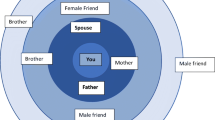Conclusion
Bermuda has some unique aspects to her system of care from which others can learn. One is her home resource aides whose job descriptions are open-ended—assisting in whichever way would be valuable. In this respect they are similar to Sweden’s home helpers. The concept is contrary to prevalent staffing patterns in most countries where individuals have defined and limited tasks, rather than doing all that is necessary to provide care for the individual.
Another is her own distinctive style of supportive housing to help seniors stay in the community and age in place. Cluster housing maintains the landscape while being designed for relatively barrier-free living, where services can be delivered efficiently.
Bermuda, like all countries, is recognizing the aging of its society and inquiring into how to best provide appropriate health and social care. The challenge is to incorporate knowledge gained elsewhere with its own experience to develop services which best meet the needs of Bermudian seniors. In the international dialogue on health care, others can also learn from some of Bermuda’s unique and innovative solutions.
Similar content being viewed by others
References
Facts and Figures: 1990 Edition. Hamilton, Bermuda. Government of Bermuda Statistical Department, 1990.
Annual Report of the Registrar General, 1989. Hamilton, Bermuda. Dept. of the Registry General, Ministry of Labour and Home Affairs, 1989.
Report of the Task Force on Housing. Hamilton, Bermuda: Government of Bermuda, 1988.
Cape, R.D.T.Health Care for the Elderly in Bermuda. Victoria, Australia: National Research Institute of Gerontology and Geriatric Medicine, Mount Royal Hospital, 1986.
Henke, K.D. Respondent to B. Jonsson’s article, “What Can Americans Learn from Europeans?” In Health Care Systems in Transition: The Search for Efficiency. Paris, France: Organization for Economic Cooperation and Development, 1990.
Bermuda Digest of Statistics, 1988. Hamilton, Bermuda: Ministry of France, Statistical Department, 1988.
Manning, F.E. “The Economy.” InBermudian Politics in Transition: Race, Voting and Public Option. Hamilton, Bermuda: Island Press, 1978.
Hooyman, N.R. “Women as caregivers of the elderly: Implications for social welfare policy and practice.” In D.E. Beigel and A. Blum (Eds.)Aging and Caregiving: Theory, Research, and Policy. Newbury Park, CA: Sage Publications, 1990.
Chappell, N.L.Informal Support and Aging. Toronto, Ontario: Butterworths (forthcoming), 1991.
Brody, E.M. and Schoonover, C.B. “Patterns of parent-care when adult daughters work and when they do not.”The Gerontologist, 26: 372–381, 1986.
Hokenstad, M.C. and Johansson, L. “Caregiving for the elderly in Sweden: Program challenges and policy initiatives.”Aging and Caregiving: Theory, Research, and Policy, op. cit.
Chappell, N.L. and Havens, B. “Who helps the elderly person: A discussion of informal and formal care.” In W. Peterson and J. Quadagno (Eds.) Social Bonds in Later Life. Newbury Park, CA: Sage Publications, 1985.
Rights and permissions
About this article
Cite this article
Chappell, N.L., Edness, Q.L. Health and social services for seniors in Bermuda. Ageing International 18, 28–32 (1991). https://doi.org/10.1007/BF03004299
Issue Date:
DOI: https://doi.org/10.1007/BF03004299




